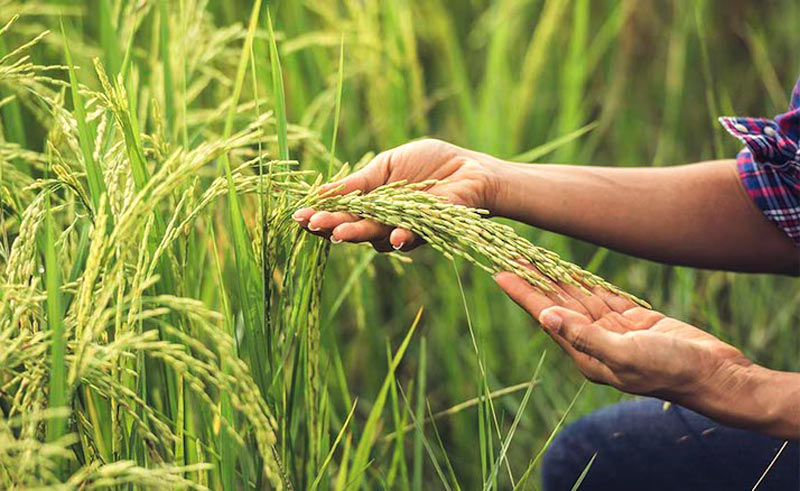Cuba continues seeking alternatives to food sovereignty
- Written by ACN
- Published in Cuba
- Hits: 1148
 More than six decades have passed and the panorama of the Cuban countryside is very different from the one left by capitalism in 1959, when 200,000 farming families did not have a stick of land to sow, and half of the best lands were in the hands of foreign companies, while nearly 300,000 hectares remained uncultivated.
More than six decades have passed and the panorama of the Cuban countryside is very different from the one left by capitalism in 1959, when 200,000 farming families did not have a stick of land to sow, and half of the best lands were in the hands of foreign companies, while nearly 300,000 hectares remained uncultivated.
The present is also complex and challenging, since Cuba has had to face a permanent U.S. blockade, with tensions and limitations to its agriculture and not a few subjective deficiencies. Food shortages continue to be a pending issue, on which the country's leadership has focused its greatest efforts and continues to look for ways.
In the midst of the fight against COVID-19, the impact of the world economic crisis and the greater misfortunes of the criminal US policy, on April 13, 2021, the government announced 63 measures to boost agriculture and which would respond to structural, organizational and productive problems, land use and tenure, as well as those of a financial nature.
These measures are the result of an analysis based on the criteria and concerns of experts, scientists, producers and agricultural managers, because the role of universities, science and the wisdom of those who extract the fruits from the soil is vital.
One year after its implementation, Ydael Jesus Perez Brito, Minister of Agriculture, explained in the TV program "Mesa Redonda" that there are 370,000 natural land holders, 4,000 cooperatives and 300 companies. However, there are still idle or poorly exploited plots of land, a problem to be solved.
But in the opinion of many producers, based on the multiple benefits perceived in high monetary income, in authorizations to slaughter and market livestock, in eliminated obstacles and other incentives, a good mood is prevailing in the Cuban countryside, as a result of the decision of the Party, the Government and the Ministry of Agriculture ( MINAG) to listen to the farmers and other workers in the countryside.
A timely Food Security Law
In another unprecedented milestone, last May 14, the National Assembly of People's Power approved the Law on Food Sovereignty and Food and Nutritional Security, very timely at a time when the price of food and inputs is rising internationally, as a result of the pandemic and also, in the case of Cuba, of the tightened U.S. siege.
These factors are combined with phenomena such as rural-urban migration, population aging and climate change.
Novel aspects of the new legislation are its intersectoral, interdisciplinary and multidisciplinary nature, which helps to organize productive actors.
According to Mayra Cruz Legon, legal director of the Ministry of Agriculture, resolving issues related to food sovereignty and security requires economic, social and also legislative measures.
Although this law by itself will not provide food, it does guarantee the right of Cubans to obtain safe, quality, nutritious, balanced and culturally acceptable products.
What else can be done to satisfy the needs of the population?
In visits and meetings with farmers and cooperatives in several provinces of the country, Miguel Diaz-Canel, First Secretary of the Central Committee of the Communist Party of Cuba and President of the Republic, has been interested in knowing how the process of transformations in agriculture has favored them, what can be improved, what proposals they have on agricultural and livestock issues, and above all their willingness to continue improving food production and satisfy the needs of the population.
"It is true that the blockade affects us a lot, especially in a sector like this, but it will continue and the question is then how, with the blockade, we are able to produce, to go beyond the political criminality and show that we can develop a sustainable, efficient agriculture; that we can produce an important part of the food that the population demands, and that this also becomes a better standard of living for the farmers from the income they get from what they produce.
"What we ask you once again - he told the producers - is that in the midst of the complex situation we have, where a part of the population has certain vulnerability, especially pensioners and retirees, that to the extent that they can provide prices that are more affordable to the population, without affecting your income, they do so".
In order to enrich and update the 63 measures in agriculture, the Cuban president, in a recent national plenary meeting of representatives of cooperatives and advanced producers of different crop centers of the nation, oriented several directions of work that will contribute to consolidate the agricultural and livestock work in the country.
